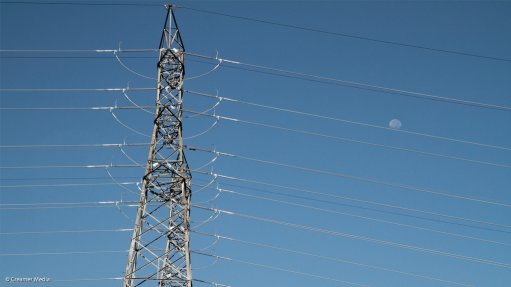World risks 'disaster' as reuse of natural resources declines
The proportion of raw materials the world is reusing has fallen, researchers said on Tuesday, warning of a "global disaster" as annual consumption of natural resources rose to 100-billion tonnes for the first time.
Just 8.6% of the 100-billion tonnes of materials – including minerals, metals, fossil fuels and biomass – was put back into service in 2017, said a report by Amsterdam-based social enterprise Circle Economy, using the latest available data.
That compares with 9.1% of materials that were used again two years earlier, when annual consumption was 93-billion tonnes, CEO Harald Friedl told the Thomson Reuters Foundation.
"For the first time in history, more than 100-billion tonnes of materials are entering the global economy every year," he said.
"We are going from bad to worse in terms of circularity. This is really dramatic news at the beginning of this year, which only points to one thing: action."
To reduce waste and planet-warming emissions, and keep climate change in check, economies should seek to become "circular" by reusing and recycling products, green groups say.
The amount of materials the world uses has tripled since 1970 and could double again by 2050 if no action is taken, the United Nations estimates.
Friedl said the world was predominantly relying on extracting virgin materials to fuel growth, rather than making better use of existing resources.
"We are risking global disaster if we continue this way of limitlessly using the world's resources," he said, urging faster action to keep the average rise in global temperatures to limits adopted in the 2015 Paris Agreement.
Governments must lead the change in their economies, he said, by collaborating on circular strategies, working with businesses, green groups and academics, and creating national roadmaps.
So far, 13 European countries have adopted such roadmaps and in 2019 Colombia became the first Latin American country to launch a similar policy, the report said.
Governments, researchers and companies working to achieve circular economies should share data on things like supply chains, emissions and materials extraction, said Friedl.
That would make it easier to identify opportunities and help economies shift to a more sustainable model, he said by phone from the World Economic Forum meeting in Davos, Switzerland.
A global coalition in support of circular economies was also needed, as today's voluntary and often fragmented efforts could not drive transition fast enough, he added.
Cristianne Close, a global markets expert at green group WWF, said economic and financial systems promoted unsustainable consumption and were degrading the natural environment.
"The circular economy provides a tangible framework for reducing our impacts, protecting ecosystems and living within the means of one planet," she added in a statement.
Article Enquiry
Email Article
Save Article
Feedback
To advertise email advertising@creamermedia.co.za or click here
Press Office
Announcements
What's On
Subscribe to improve your user experience...
Option 1 (equivalent of R125 a month):
Receive a weekly copy of Creamer Media's Engineering News & Mining Weekly magazine
(print copy for those in South Africa and e-magazine for those outside of South Africa)
Receive daily email newsletters
Access to full search results
Access archive of magazine back copies
Access to Projects in Progress
Access to ONE Research Report of your choice in PDF format
Option 2 (equivalent of R375 a month):
All benefits from Option 1
PLUS
Access to Creamer Media's Research Channel Africa for ALL Research Reports, in PDF format, on various industrial and mining sectors
including Electricity; Water; Energy Transition; Hydrogen; Roads, Rail and Ports; Coal; Gold; Platinum; Battery Metals; etc.
Already a subscriber?
Forgotten your password?
Receive weekly copy of Creamer Media's Engineering News & Mining Weekly magazine (print copy for those in South Africa and e-magazine for those outside of South Africa)
➕
Recieve daily email newsletters
➕
Access to full search results
➕
Access archive of magazine back copies
➕
Access to Projects in Progress
➕
Access to ONE Research Report of your choice in PDF format
RESEARCH CHANNEL AFRICA
R4500 (equivalent of R375 a month)
SUBSCRIBEAll benefits from Option 1
➕
Access to Creamer Media's Research Channel Africa for ALL Research Reports on various industrial and mining sectors, in PDF format, including on:
Electricity
➕
Water
➕
Energy Transition
➕
Hydrogen
➕
Roads, Rail and Ports
➕
Coal
➕
Gold
➕
Platinum
➕
Battery Metals
➕
etc.
Receive all benefits from Option 1 or Option 2 delivered to numerous people at your company
➕
Multiple User names and Passwords for simultaneous log-ins
➕
Intranet integration access to all in your organisation

















